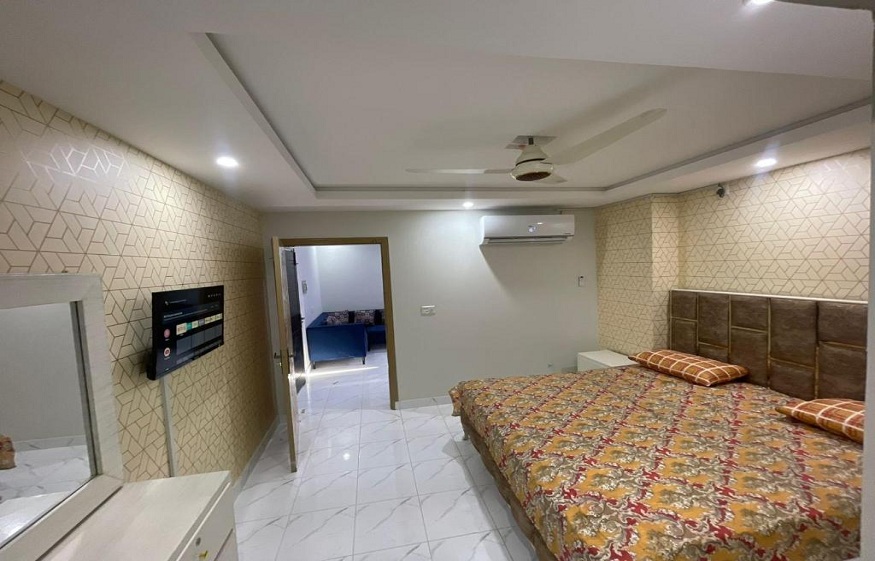Hunting for a rental one bedroom apartment can be thrilling, especially if it is your first solitary stay or in a new area. But to walk into a lease without very carefully observing some basics can lead to trouble later. Moving for a job, study, or a new start, whatever it may be, do know what you need to take into account before selecting a one bedroom apartment for rent. This manual will assist you in paying particular attention to the most critical facts before renting so that you will not have any serious issues once you move in.
- Verify the Overall Price of Renting: The most important thing to start with is the actual price of the apartment each month. Rent is not the only cost. You can also inquire about additional fees for water, electricity, internet, or maintenance. The price you see advertised may not be all-inclusive sometimes. It’s also a smart move to check if there is a deposit and how much it will be. Viewing the total cost will prevent surprises.
- Be Familiar with Lease Terms: Reading the lease agreement before renting is very important. The lease informs you of how long you are allowed to stay, the amount you’ll pay in rent, and what you can and cannot do within the apartment. Leases tend to be either one year or month-to-month. Make certain that you know what you need to do if you need to terminate early or if the rent is to increase subsequently. If you do not understand it, request that the landlord explain it to you well.
- Inspect the Apartment Carefully: Do not sign until you actually go see the apartment, if possible. Inspect all rooms, potentially including kitchen, bathroom, and lounge. Inspect lights, do they turn on, taps run, and do you notice or detect any damage or leaks? Try opening and shutting windows and doors, and observe if these operate. Additionally, inspect for any odd smells, which might indicate mould or lack of thorough cleanliness. If you find anything broken, tell the landlord to repair it before you take occupancy.
- Get to Know the Neighbourhood: Where the flat is situated counts. You should walk around the neighborhood during the day and at night. Attempt to discover if it is a secure place to reside. Are there night sounds? Are there stores, schools, or transport accessible nearby? Some places might be less expensive, but not quite as nice to stay in. A decent place can help you relax and feel safe, even if the rent is slightly higher.
- Ensure the Environment Is Comfortable: As you approach the apartment building, ask yourself if you will be happy living there. Is it light enough? Are the rooms too small? Can you envision yourself staying there? If all else checks out, yet you are still unsure, the most important factor is you. Listen to your gut when you go and inspect the apartment. If something is not right, it is better to continue your search.
- Discover Who to Contact for Repairs: Each apartment will eventually need to be fixed. Ask the landlord who is going to repair things such as plumbing, electrical issues, or broken windows. Responsible landlords act quickly when something breaks. If you are a renter in a large complex with multiple apartments, there may be a caretaker or office you can contact. Knowing who to call saves you a lot of headaches down the road.
- Review Noise and Privacy Level: Certain apartments are extremely noisy because the walls are thin, the streets are noisy, or the neighbors are noisy. You must definitely pay attention to the noise level when you go there. And also, check the amount of privacy that you will receive, especially if windows open up to buildings around or on the street.
- Consider the Weather and Air Flow: The flat should be ventilated and clean. Without a fan or air conditioner, it can get extremely hot, particularly in summer. And if the windows cannot open at all, it might not be convenient to have fresh air. Bad air will make you sick or sleepy. So, check whether the rooms are ventilated and cool when you go there.
- Speak to the Neighbours If Possible: If you can, stop talking to someone who already lives in the building. Speak with them and listen to what they have to say about living in the building. They will let you know if the landlord is nice to deal with, if there are any issues with the building. Straightforward answers from the neighbours will make the decision-making process smoother for you.
- Ask About Furniture and Appliances: Some of the apartments are equipped, and some are not. You have to know what you are getting when you get there. You can inquire whether the apartment has a bed, sofa, fridge, stove, or washing machine. If not, you have to purchase or lease them. Inquire whether the appliances work on your inspection visit.
- Check the Security Features: Safety should always be the priority. Look for security cameras, guards, or a gate. Ensure the apartment door has secure locks. Check through the door to ensure it will be safe to enter and leave in the evening. If you are not comfortable, you should always go looking for another location that would keep you safe.
- Know the Rules of the Building: Each building will have its own rules. These could be quiet hours, pet ownership, or whether you can get rid of garbage. These are things that you need to clarify when you move in. If you listen to music or own a pet, you need to make sure they are permitted. Disobedience of these rule items can land you in hot water with the landlord or neighbors.
Conclusion
It’s well worth taking the time to research these critical points so you can make the smart decision before you rent a one bedroom apartment. Better to be safe now than to be unhappy later. A good apartment is not merely about location or rent—it’s also about convenience, safety, and happiness. Before you put sign, relax and take time to question, double-check, and feel okay with all. If you are searching for one bed room apartments in Kinshasa drc, utilize this guide to make a wise and hassle-free decision.




